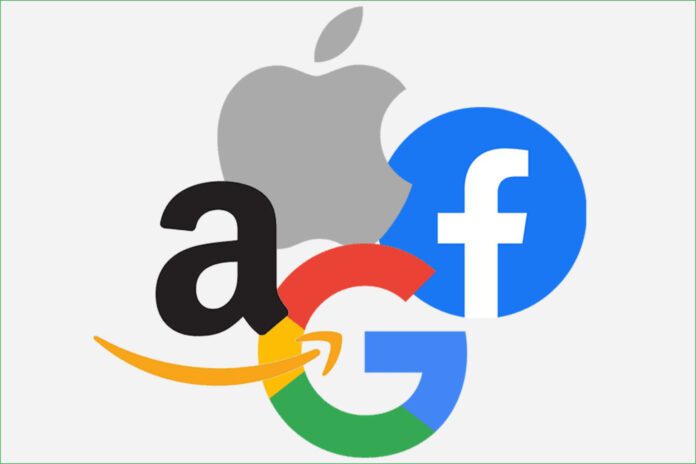WASHINGTON, D.C. — Congressional hearings about major technology companies have been going on for years. Most of the time the hearings have revealed that members of Congress know little about the issues relating to the technology business, and as a result the hearings were ineffectual and the outcome predictable. This year was different.
For the past year, the big tech companies have been complying with congressional records requests, resulting in millions of pages being sent to the staff of the House Committee on the Judiciary. Staffers have been spending their time going over the resulting evidence, briefing the committee members and preparing questions. Perhaps even more important was the bipartisan nature of the proceedings.
“This is the most bipartisan effort that I have been involved with in five and a half-years of Congress,” said Rep. Ken Buck (R-CO) as quoted by antitrust subcommittee chairman Rep. David Cicilline (D-RI) in his opening remarks.
Companies questioned about variety of issues
Because truly bipartisan hearings are rare in Congress, the heads of Apple, Amazon, Facebook and Google weren’t completely prepared for serious, on-topic questions about their operations. For example, Amazon’s Jeff Bezos was asked whether his company forced small suppliers out of business by making similar products cheaper than they could. Bezos said it was against policy, but that he couldn’t guarantee that the policy might not have been violated.
Facebook was questioned about its many fines, its promises to do better and its apparent support of disinformation as a way to make money. Google was asked about the control people had over the use of their information, to which CEO Sundar Pichai claimed that people have complete control. “We today make it very easy for users to be in control of their data. We have simplified their settings,” he said. Facebook CEO Mark Zuckerberg made a similar assertion when asked about user privacy.
But this time both Google and Facebook were asked detailed questions about their advertising models and the fact that internet users had no real choice when it came to sharing their personal data with either company.
Apple CEO Tim Cook meanwhile was queried about his company’s app ecosystem and the percentage of revenue the company takes for in-app purchases. Cook replied that developers could sell their apps in other places, such as the (now-defunct) Windows Phone store.
While there were a few off topic questions. One member of Congress asked for tech support on a game console, another Congressman was thinking aloud that Facebook somehow knew about Twitter’s alleged effort to suppress political conservatives. The questions were mostly well thought-out and relevant.
Ultimate goal: New tech antitrust legislation
This is probably not good news for the tech industry. Because this hearing was held by the House Subcommittee on Antitrust, the ultimate goal of which is to produce some kind of antitrust legislation.
However, each of these companies is very different from the other. For example, while Apple has about half of the smartphone business in the U.S., most of the other half belongs to Google. Amazon has the bulk of online sales, but while its market valuation is high, they don’t control the retail industry. This means that any legislation that emerges from the committee will have to be focused on only part of the industry.
The most likely candidates for some kind of antitrust legislation or regulation seem to be Google and Facebook. Both companies received a great deal of criticism for their advertising businesses, their privacy practices and their near total control over user data. Coupled with the drive for control of data and with privacy data currently under way, and those companies appear to be on the short list for regulation. Apple and Amazon may have to wait a little longer.
Wayne Rash, a former executive editor of eWEEK, is a longtime contributor to our publication and a frequent speaker on business, technology issues and enterprise computing.
